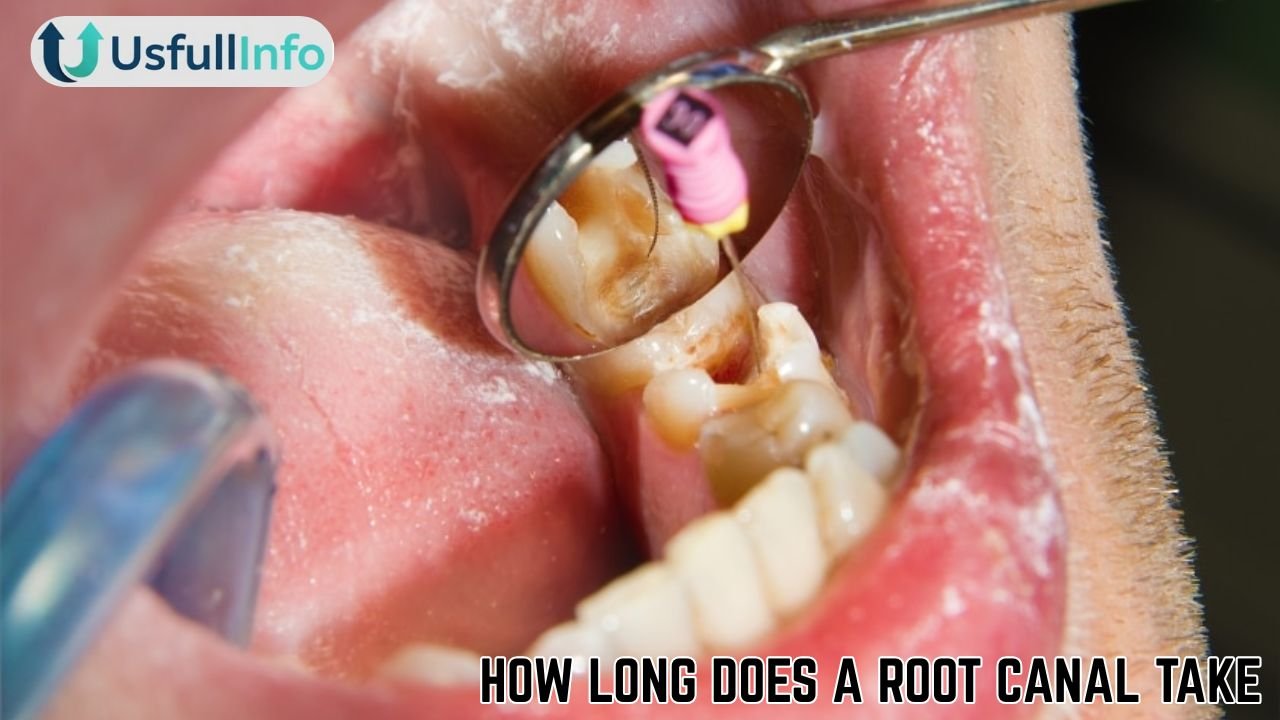If you’ve been told you need a root canal, your first question is likely, “How long does a root canal take?” It’s a common concern, and the answer is reassuringly straightforward. A typical root canal procedure takes between 30 and 90 minutes. However, this timeframe isn’t set in stone. The exact Procedure Take depends on several factors, all focused on one goal: saving your natural tooth and restoring your oral health.
This guide will walk you through what influences the duration, what happens during the appointment, and what to expect as you recover.
What Factors Influence the Procedure Time?
Think of a root canal like a repair job; some jobs are quick, while others are more complex. Here are the key elements that determine your specific timeline:
- Tooth Location: This is the biggest factor. Front teeth, with their single, straight root, are the simplest and fastest to treat. Back teeth (molars), on the other hand, have multiple, curved roots, requiring more time for a thorough cleaning and filling.
- The Severity of Infection: A tooth with a simple infected pulp is a standard case. However, a severe infection that has spread requires the dentist to spend extra time disinfecting the canals, potentially leading to a second visit.
- The Dentist’s Approach: General dentists are skilled at this dental treatment, but they may refer Complex cases to a root canal specialist, known as an endodontist. These specialists use modern techniques like microscopes to handle intricate anatomy, which can improve efficiency and outcomes.
A Step-by-Step Look at the Appointment
Understanding the stages of the root canal process helps clarify where the time goes. Your entire visit will be longer than the procedure itself to account for preparation.
- Preparation and Anesthesia (15-20 minutes): Your dentist will review the treatment plan and apply local anesthesia to numb the affected tooth completely. A dental dam is then placed to isolate the tooth, keeping it clean and dry.
- Access and Cleaning (20-60 minutes): This is the core of the Procedure Take. The dentist creates a small hole to access the pulp chamber. Using tiny instruments, they carefully remove the infected pulp, blood vessels, and nerves from the inside of the tooth and the root of the tooth. This cleaning and shaping process is meticulous, especially in multi-rooted teeth.
- Filling and Sealing (10-20 minutes): Once the canals are clean and dry, they are filled with a biocompatible material, often a rubber-like material called gutta-percha. This seals the canals to prevent future infection. The access hole is then sealed with a temporary filling.
Single-Visit vs. Multi-Visit Root Canals
With modern techniques, many root canals are completed in one appointment. This is efficient and ideal for less complex cases.
However, a second visit is sometimes necessary. If there is a severe infection, your dentist might place medication inside the tooth and seal it with a temporary filling. You’ll return after the infection has cleared for the final filling. This multi-visit approach is a common and successful treatment plan for more complex situations.
What About Recovery Time?
The root canal procedure itself is not painful, thanks to local anesthetic. Afterward, it’s normal to experience some mild discomfort or tenderness for a few days as the tissue around the tooth heals. This is easily managed with over-the-counter counter pain relievers.
You can usually resume normal activities the next day. Sticking to soft foods for a day or two can help you stay comfortable. Any tenderness typically fades quickly, and practicing good oral hygiene will aid healing.
The Final Step: Protecting Your Tooth
For back teeth, the journey isn’t over after the root canal. Because the dental procedure removes the inside of the tooth, the structure can become brittle. A dental crown is almost always recommended as the final restoration. This permanent crown protects the tooth from fracture under chewing force.
This requires a separate follow-up appointment where the temporary filling is replaced and the custom-made crown is cemented permanently. This step is crucial for the long-term survival of your tooth.
Conclusion: A Manageable Procedure for Long-Term Health
So, how long does a root canal take? While the core procedure typically ranges from 30 to 90 minutes, the total commitment may include a follow-up for a crown. Understanding these timelines helps demystify the process. A root canal is a highly successful dental treatment designed to relieve the pain of an infected tooth and preserve your smile. By trusting your dental office and following their treatment plan, you are making a smart investment in your long-term oral health.







